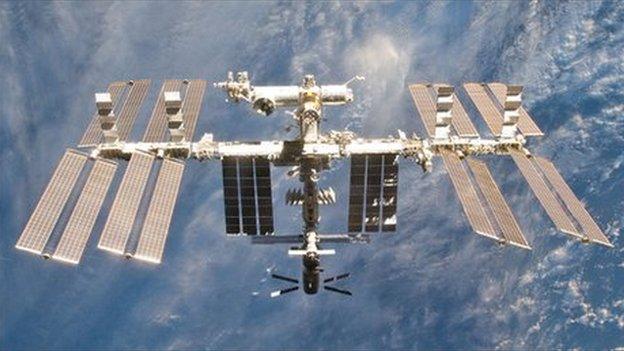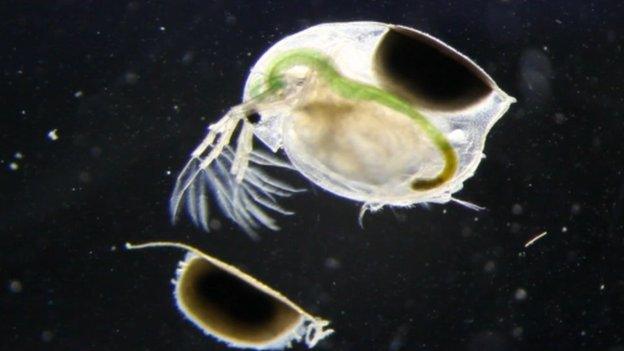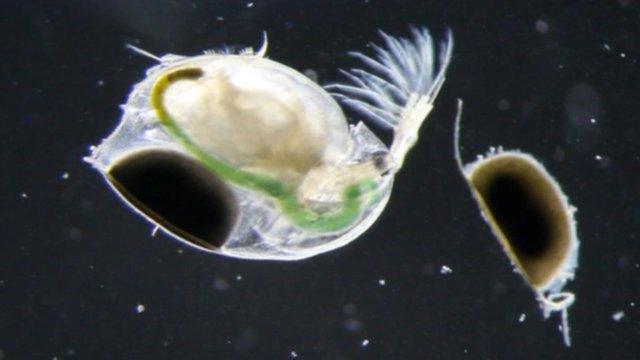University of Birmingham water fleas in space
- Published
- comments
The water fleas will be sent to the International Space Station
Water fleas taken from a pond at the University of Birmingham have been selected for a space mission.
The idea is to see how they react to life in space on the International Space Station (ISS).
The experiment was the idea of a group of school children from Wales, external - Liam Collins-Jones, Rhiannydd Thomas, Sion Phillips and Trystan Gruffydd from Garth Olwg School, Georgia Bailey from Tonyrefail School and Ieuan Williams from Aberdare High School.
Water fleas are very interesting creatures that usually reproduce asexually.
They are all females and they give birth to pairs of tiny female twins they carry inside them.
But when water fleas are stressed they start to have reproductive sex.
The females produce male twins which then mate with the females and produce something called a resting egg.
Future astronaut food
This settles in the sediment and survives whatever event the water fleas are stressed about - usually winter for example.
But the students had a clever idea. If you sent water fleas into space, then the way they reproduced would be an indicator of how stressed they were.

More than that, water fleas can be a good indicator of how exposure to life in space can affect humans.
One day we might even need water fleas in ponds on board space ships to feed freshwater fish that would grow up to feed the astronauts.
At the University of Birmingham they have some of the world's best expert in water fleas.
When they heard about the plans for the experiment they offered to help , externalwith some of the more technical aspects of the challenge.
As Dr Kay van Damme explained to me, water fleas are fairly delicate creatures.
'One way trip'
They have to work out how to transport them safely 400km up to the space station and more importantly how to feed them and keep them healthy for the month-long experiment, which should give them plenty of time to create several generations.

Water fleas can produce a black “resting egg” which settle in sediment
At the moment the scientists are brewing up flasks of green algae to feed the space fleas and working out a feeding regime.
The actual care of the fleas will be carried out by one of the six astronauts and cosmonauts on the ISS itself.
The launch is scheduled for June 2015, but the bad news is this is a one way trip for our brave Brummie water fleas.
After the experiment is over it will not be possible to bring them back to earth.
But rather than a dull, short life in a Birmingham pond, they will be helping out science while living amongst the stars.
Meanwhile, if you can think of a good experiment for the space station get in touch with the International Space School Educational Trust here, external.
- Published19 December 2014
